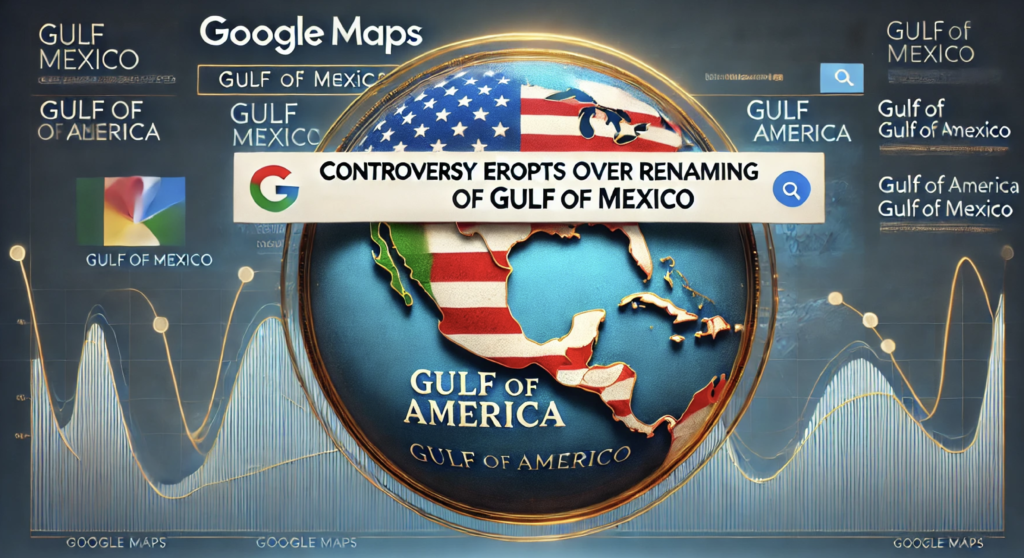
In a controversial decision, Google Maps has renamed the Gulf of Mexico to «Gulf of America» for searches conducted within the United States. This change was implemented following an executive order signed by former U.S. President Donald Trump, a move that has sparked widespread debate among political leaders, historians, and the international community.
Origins of the Name Change
The renaming was first announced by Trump in late January, when he stated that the new designation was intended to «reinforce American sovereignty and historical influence in the region.» The executive order, which was signed shortly after the announcement, mandated that all U.S. government agencies, maps, and official documents reflect the new name. Google, as a widely used digital mapping service, implemented the change in accordance with updates in official government sources.
Google released a statement clarifying that the modification applies only to searches made from within the United States. Users accessing Google Maps from other countries will still see both names—»Gulf of America» and «Gulf of Mexico»—on the platform. The company also emphasized that such changes are made when official government sources update geographic names, and that this does not reflect Google’s own stance on geopolitical matters.
Political and International Reactions
The decision has been met with strong opposition from the Mexican government. Officials in Mexico City have formally requested that Google reverse the change, calling it «inaccurate and historically unjustified.» In an official letter sent to Google’s headquarters, the Mexican government urged the company to respect internationally recognized geographical names and avoid fueling political controversies.
Additionally, several Latin American leaders and scholars have condemned the renaming as an attempt to rewrite history and assert U.S. dominance over the region. The change has also led to discussions among historians, many of whom argue that the Gulf of Mexico has been known by its current name for centuries and that there is no historical basis for the new designation.
Public Response and Cultural Implications
Public reaction within the United States has been mixed. While some conservative commentators and Trump supporters have praised the renaming as a patriotic move, others have criticized it as unnecessary and politically motivated. Many Americans, particularly in Gulf Coast states such as Texas, Louisiana, Mississippi, Alabama, and Florida, have expressed confusion and skepticism about the change.
Social media has been flooded with reactions from users around the world, with hashtags like #GulfOfMexico and #GulfOfAmerica trending on platforms such as X (formerly Twitter) and Instagram. Memes, jokes, and heated debates have dominated online discussions, further amplifying the controversy.
The Establishment of «Gulf of America Day»
In addition to the renaming, Trump also declared February 9th as «Gulf of America Day,» a new commemorative day intended to celebrate the change. Supporters of the move have organized events and rallies to mark the occasion, while critics view it as an attempt to further solidify a controversial decision with little historical legitimacy.
What’s Next?
As of now, Google has not indicated whether it will reconsider the change. The company has stated that it is reviewing the Mexican government’s request but has not provided a timeline for any potential updates. Meanwhile, international organizations and mapping authorities may weigh in on the matter, influencing how other digital platforms and global map services handle the designation.
The debate over the renaming of the Gulf of Mexico highlights broader tensions between political influence and historical accuracy, raising questions about the role of technology companies in shaping public perceptions of geography and history. Whether «Gulf of America» will gain widespread acceptance remains to be seen, but for now, the controversy surrounding it continues to grow.


